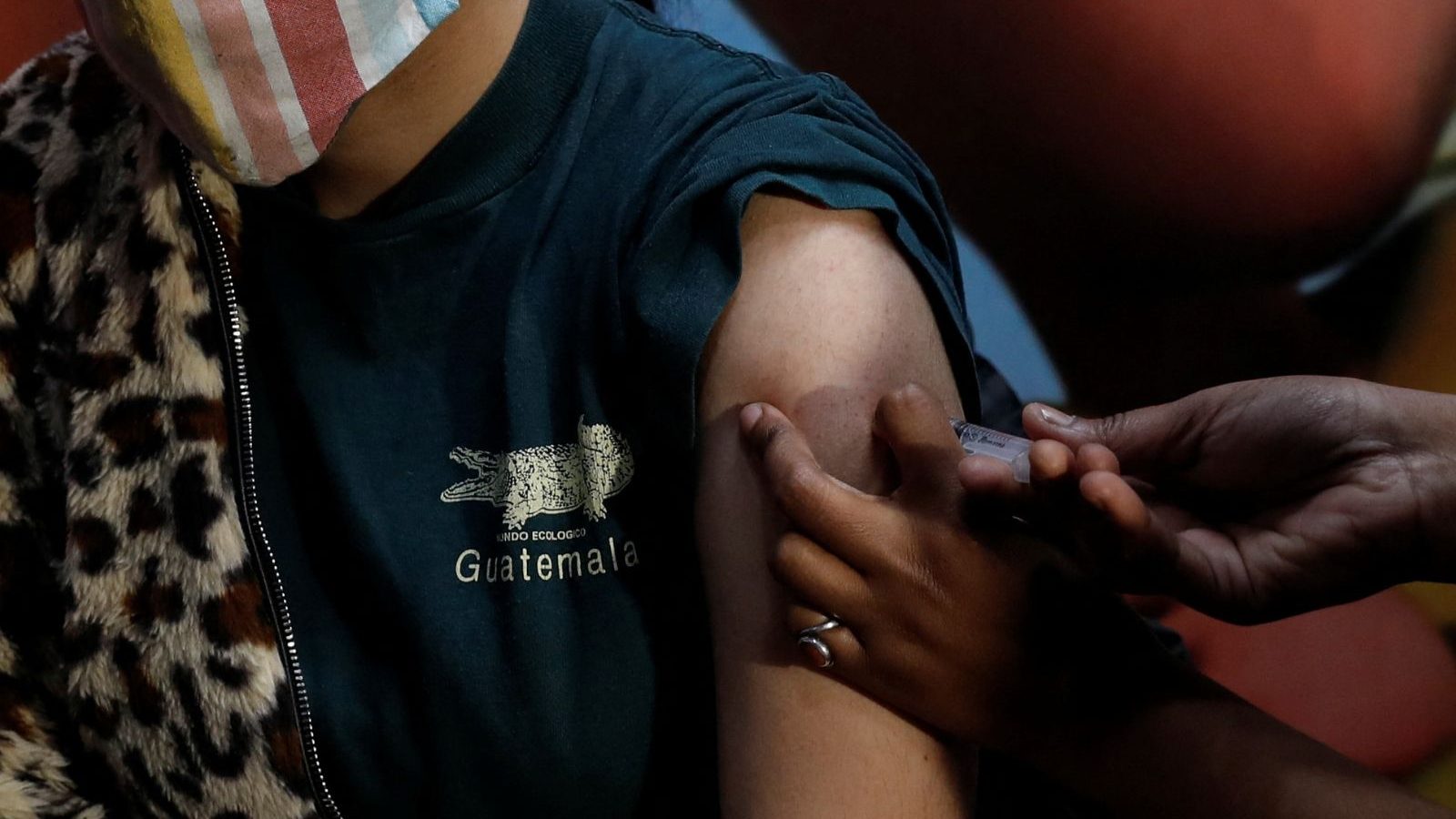Edited By: Oindrila Mukherjee
Last Updated: January 20, 2023, 18:52 IST
The Centre decided to stand up to foreign vaccine makers and invest in Indian companies like Serum institute and Bharat Biotech to launch made-in-India vaccines. (Image: Reuters/File)
Facts show that not only was the vaccine offered by Pfizer and Moderna exorbitantly priced at over $20 for each dose, but the quantity promised by both firms together was less than six crore doses
Pfizer CEO Albert Bourla being quizzed at Davos by journalists about the company’s Covid-19 vaccine has triggered the BJP to take on top Congress and AAP leaders for earlier pushing for the Pfizer shot to be brought to India.
The events date back to 2020 when the pandemic was raging and the foreign pharma giants, Pfizer and Moderna, had launched their vaccines triggering demands from opposition leaders to import them. These leaders also accused the Narendra Modi-led government of criminal negligence in not importing the vaccines on time as the second wave of Covid wreaked havoc in India.
But facts show that not only was the vaccine offered by Pfizer and Moderna exorbitantly priced at over $20 for each dose, but the quantity promised by both companies together was less than six crore doses to be supplied by the end of 2021 – woefully inadequate for India’s need of 180 crore doses. If one goes by these promises, India would have struggled to vaccinate its entire population to date had it banked on Pfizer and Moderna.
What was more bothersome for India were the terms and conditions under which these companies supplied their vaccines to other countries – including seeking sovereign guarantees and an indemnity clause to save itself from any lawsuit, in case their vaccine had an adverse reaction.
To ensure such feuds will be solely taken care of by the central government, these companies even asked for sovereign guarantee in which they asked for the right to seize India’s properties overseas and the same be pledged as collateral assets in case the government does not fight such cases for them.
Notwithstanding pressure from the opposition, the Centre decided to stand up to foreign vaccine makers and, instead, invest in Indian companies like Serum Institute of India and Bharat Biotech to launch made-in-India vaccines that have been administered via 220 crore doses so far.
As a result, in November 2021, when the two global vaccine makers had promised their first consignment to India, the country began exporting made-in-India vaccines at just $2.5 per dose. “It was all about the respect for our country, which we couldn’t afford to let down. Their bargaining felt like selling our own country,” a top minister had then told News18.
A book, Braving a Viral Storm, India’s Covid-19 Vaccine Story, penned by Aashish Chandorkar and Suraj Sudhir and published by Rupa Publications, details these events. It mentions that union health minister Mansukh Mandaviya was so livid with an Indian official of one of the international pharmaceutical firms, who came to visit him in 2021, that he did not even offer a chair to him after seeing the proposed documentation of the company’s offer.
The authors write that all efforts of international lobbying and getting India to sign a bad deal were resisted by the central government, all in national interest. Citing interviews with health ministry officials, the book says Indian decision-makers were “ill at ease” with the attitude and language of international vaccine makers whose “signals were lopsided”.
The book says even if India swallowed its pride and signed on the clauses insisted on by Pfizer, transporting these vaccines and maintaining their operating conditions would have been difficult if not outright impossible.
“There was pressure from these firms, their domestic lobbyists and global amplifiers in 2021, as well as opinion pieces written on why India was doing the wrong thing by not tapping into Pfizer. Whether these suggestions were made keeping in mind national interests or taken up expressly at the behest of the pharmaceutical firms in violation of Indian healthcare media regulations may never be known,” the book says.
Read all the Latest India News here



